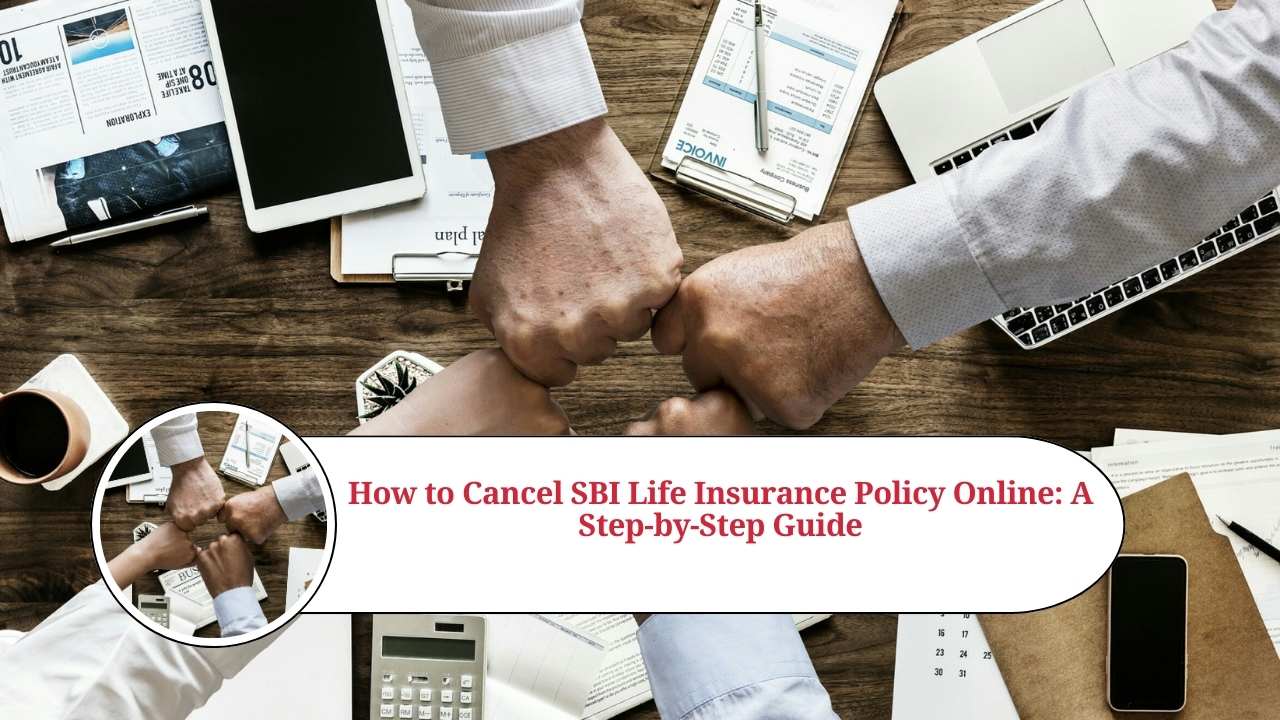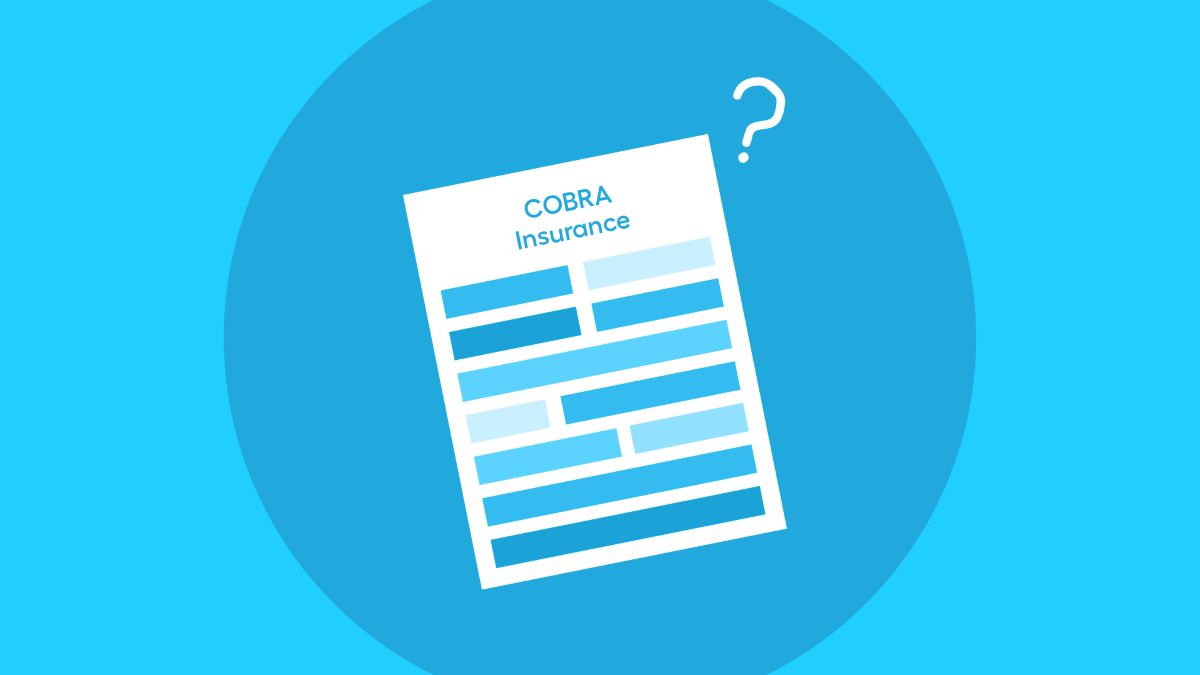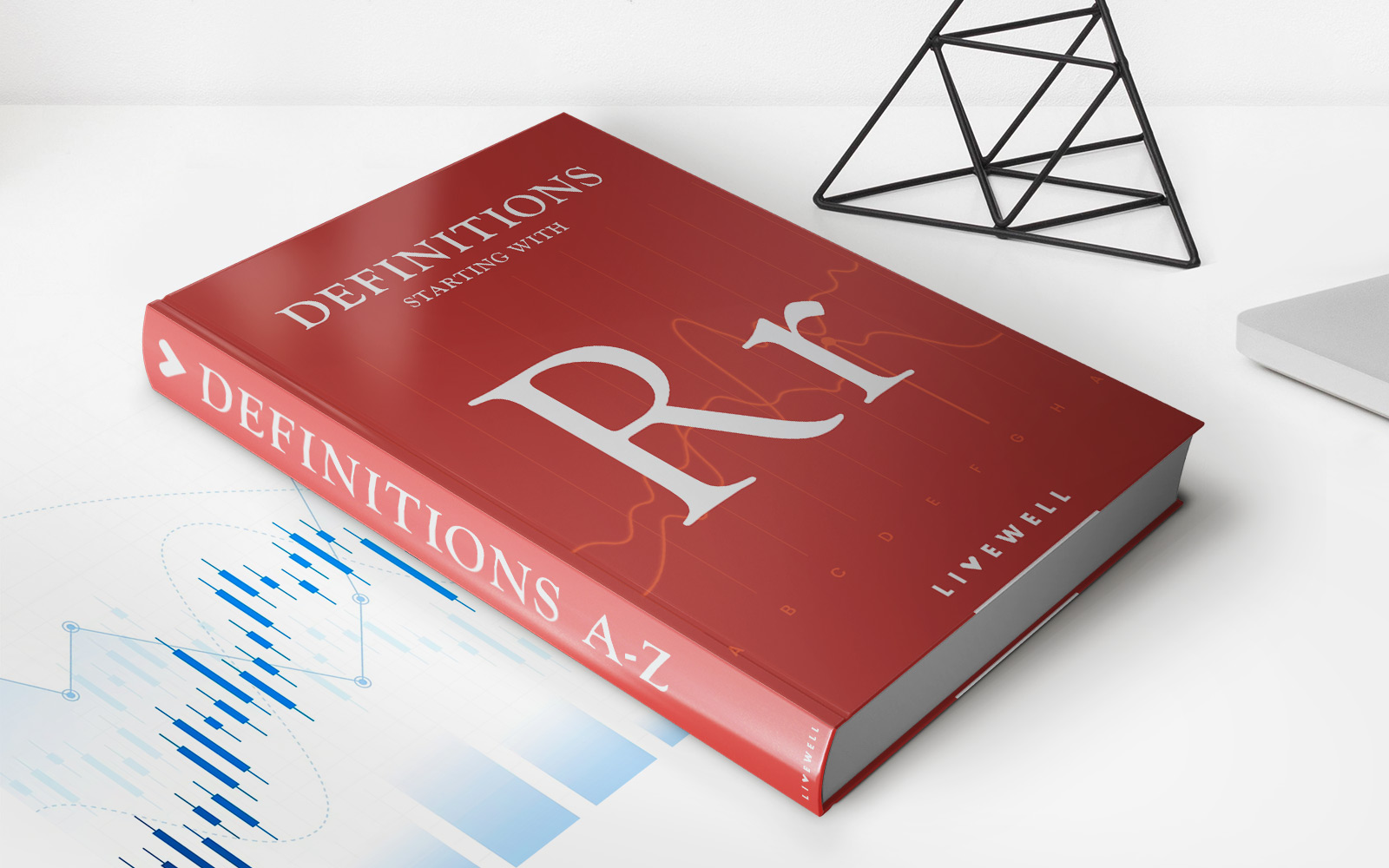

Finance
How To Cancel Home Insurance Policy
Published: November 21, 2023
Learn how to cancel your home insurance policy and manage your finances effectively. Gain insights into the process and make informed decisions.
(Many of the links in this article redirect to a specific reviewed product. Your purchase of these products through affiliate links helps to generate commission for LiveWell, at no extra cost. Learn more)
Table of Contents
Introduction
Home insurance is an essential aspect of protecting your valuable investment. It provides coverage for your dwelling, personal belongings, and liability in case of unfortunate events such as fire, theft, or natural disasters. However, there may be instances where you find the need to cancel your home insurance policy. Whether you’re moving to a new home, finding a better insurance deal, or simply reassessing your coverage needs, understanding the cancellation process is crucial to ensure a smooth transition.
In this article, we will explore the reasons for canceling a home insurance policy and provide a step-by-step guide to assist you in this process. We will also discuss important considerations before canceling and provide alternatives to help you make an informed decision.
It’s important to note that canceling your home insurance policy should not be taken lightly, as it leaves your valuable investment unprotected. Therefore, it’s essential to assess your circumstances carefully and explore alternatives to ensure you maintain coverage that meets your needs.
Now let’s delve into the details of canceling a home insurance policy and the steps you need to take to navigate this process smoothly.
Reasons for Canceling Home Insurance Policy
There are various reasons why homeowners may consider canceling their home insurance policy. It’s essential to understand these reasons and evaluate your own situation before making a decision. Here are some common reasons for canceling a home insurance policy:
- Selling your home: If you are selling your property, you may choose to cancel your home insurance policy once the sale is complete. The new homeowner will likely purchase their own insurance coverage.
- Relocating: When you move to a new home, you will typically need to cancel your existing home insurance policy and purchase a new one for your new property. It’s important to ensure a smooth transition to avoid any gaps in coverage.
- Cost considerations: Homeowners may decide to cancel their insurance policy due to financial reasons. If the premiums have become unaffordable or if you have found a more cost-effective insurance plan, you may choose to switch providers or adjust your coverage accordingly.
- Change in coverage needs: As time goes on, your coverage needs may evolve. For example, if you have made significant renovations or upgrades to your home, you might need to adjust your policy accordingly. In some cases, you may find that your current policy no longer meets your needs, leading to a decision to cancel and seek a more suitable option.
- Consolidating policies: Some homeowners choose to consolidate their insurance policies to take advantage of multi-policy discounts. If you already have other policies with an insurance provider, you may decide to cancel your existing home insurance policy and bundle it with your other policies.
- Discontinuing homeownership: In some cases, homeowners may decide to no longer own a property, perhaps opting to rent instead. If you no longer own a home, it is logical to cancel your home insurance policy to avoid unnecessary expenses.
Before canceling your home insurance policy, it’s essential to carefully consider your specific circumstances, evaluate your coverage needs, and explore alternative options to ensure that you are adequately protected. Be sure to consult with your insurance provider and discuss any concerns or changes in your situation that may impact your coverage requirements.
Now that we’ve explored the reasons for canceling a home insurance policy, let’s move on to understanding the cancellation process in the next section.
Understanding the Cancellation Process
Before proceeding with canceling your home insurance policy, it’s important to understand the cancellation process to ensure a smooth transition and avoid any potential complications. The specific steps and requirements may vary depending on your insurance provider and policy terms, but here are some general guidelines to help you navigate the cancellation process:
- Review your policy: Start by thoroughly reviewing your home insurance policy documents. Pay close attention to the section that outlines the cancellation process, including any specific conditions or notice periods that you must adhere to.
- Contact your insurance provider: Reach out to your insurance provider to inform them of your decision to cancel your home insurance policy. It’s best to do this in writing, either by sending an email or a formal written letter. This will serve as a written record of your cancellation request.
- Provide necessary information: Your insurance provider may require specific information to process your cancellation request. Be prepared to provide details such as your policy number, effective date of cancellation, and the reason for canceling.
- Check for any cancellation fees: Some insurance policies may have a cancellation fee, especially if you are canceling before the policy term is complete. Make sure to review your policy documents or contact your provider to determine if there are any applicable fees.
- Follow the notice period: Many insurance policies require a notice period before cancellation takes effect. This means you must inform your provider a certain number of days in advance to avoid any penalties or additional charges. Ensure that you comply with the notice period mentioned in your policy.
- Confirm the cancellation: Once your insurance provider has processed your cancellation request, it’s important to receive written confirmation of the cancellation. This documentation serves as proof of your policy termination and can be useful for future reference.
It’s important to note that canceling your home insurance policy does not automatically mean you will receive a refund for the unused portion of your premium. Refund policies vary among insurance providers, so it’s advisable to clarify the refund procedure and any applicable charges during the cancellation process.
Understanding the cancellation process ensures that you fulfill all necessary requirements and minimize any potential complications. Now that you have a grasp of the cancellation process, let’s move on to the next section, where we will provide a step-by-step guide to canceling your home insurance policy.
Step-by-step Guide to Canceling Your Home Insurance Policy
Canceling your home insurance policy requires careful attention to detail and adherence to the necessary steps. While the specific process may vary depending on your insurance provider, here is a general step-by-step guide to help you navigate the cancellation process:
- Review your policy: Take the time to thoroughly review your home insurance policy. Familiarize yourself with the cancellation conditions, notice periods, and any fees or penalties that may apply.
- Contact your insurance provider: Reach out to your insurance provider and inform them of your intention to cancel your home insurance policy. This can typically be done by phone, email, or through an online customer portal. Be sure to have your policy number and relevant details on hand.
- Provide cancellation details: In your communication with the insurance provider, provide the necessary details, such as the effective date of cancellation and the reason for canceling. This information helps them process your request accurately.
- Follow notice period requirements: If your policy has a specific notice period, ensure you give appropriate advance notice before the cancellation takes effect. This helps avoid any penalties or additional charges.
- Return any requested documentation: Your insurance provider may require you to provide specific documents or forms to complete the cancellation process. Be responsive and provide any necessary paperwork promptly.
- Confirm cancellation: Once your cancellation request has been processed, ask for written confirmation from your insurance provider. This confirmation should include the effective date of cancellation and any refund details if applicable. Keep this documentation for your records.
- Update your payment arrangements: If you have automatic payments set up for your home insurance policy, be sure to stop any scheduled payments to avoid any unnecessary charges.
- Consider alternative coverage: Before canceling your home insurance policy, take the time to explore alternative coverage options. It’s essential to maintain adequate protection for your home and belongings. Research other insurance providers, compare quotes, and seek professional advice if needed.
- Notify relevant parties: Inform appropriate parties, such as your mortgage lender, of the cancellation of your home insurance policy. They may have specific requirements or recommendations regarding your coverage, so it’s important to keep them informed.
Remember, canceling your home insurance policy leaves your home and belongings vulnerable to potential risks. To ensure continuous protection, it’s crucial to explore alternative coverage options that suit your needs before canceling your current policy.
Now that you have a step-by-step guide to canceling your home insurance policy, let’s move on to the next section, where we will discuss important considerations before canceling.
Considerations before Canceling Your Home Insurance Policy
Canceling your home insurance policy is a significant decision that should be made after careful consideration. Before proceeding with the cancellation, it’s important to keep the following considerations in mind:
- Assess your coverage needs: Before canceling your home insurance, evaluate your coverage needs and assess whether your current policy adequately protects your home and belongings. Consider factors such as the value of your assets, the location of your property, and the potential risks you may face.
- Explore alternative options: Research other insurance providers and obtain quotes to compare coverage and pricing. Ensure that any alternative policy you consider provides the necessary coverage and meets your unique needs.
- Understand the financial risk: Canceling your home insurance policy exposes you to significant financial risks. In the event of a covered loss, you would be responsible for repairing or replacing damaged property or items out of pocket.
- Consider your mortgage requirements: If you have a mortgage on your home, your lender may require you to maintain home insurance coverage. Before canceling your policy, consult with your lender to understand any insurance requirements and ensure compliance.
- Consider legal obligations: Depending on your location, there may be legal requirements for homeowner’s insurance. Familiarize yourself with any legal obligations or regulations that pertain to your property before canceling your insurance policy.
- Timing: If you plan to cancel your home insurance policy, it’s crucial to time the cancellation appropriately to avoid any coverage gaps. Ensure that your new coverage, whether from a different provider or a revised policy, is in effect before canceling the existing policy.
- Consult with an insurance professional: If you have concerns or questions about canceling your home insurance policy, seek advice from an insurance professional. They can provide insights specific to your situation and help you make an informed decision.
- Consider bundling policies: If you have other insurance policies, bundling them with your home insurance policy can often lead to cost savings and added convenience. Explore the option to consolidate your policies with a single provider to optimize coverage and potentially reduce premiums.
By considering these factors, you can make an informed decision about canceling your home insurance policy and ensure that you have suitable coverage in place to protect your home and belongings.
Now that we have discussed important considerations before canceling your home insurance policy, let’s explore alternatives to canceling in the next section.
Alternatives to Canceling Your Home Insurance Policy
Canceling your home insurance policy is not the only option when your circumstances change. There are alternatives to consider that can help you maintain coverage and protect your home and belongings. Here are some alternatives to explore before deciding to cancel your home insurance policy:
- Policy adjustments: Instead of canceling your entire policy, consider adjusting the coverage and limits to better align with your current needs. This may involve reducing or increasing specific coverage types, changing deductibles, or adding endorsements to customize your policy.
- Shopping for new coverage: If cost is a concern, consider shopping for new home insurance policies from different providers. Obtain quotes and compare coverage options to find a policy that offers the right balance of protection and affordability.
- Bundling policies: If you already have other insurance policies, such as auto or life insurance, consider bundling them with your home insurance policy. Many insurance providers offer discounts for bundling multiple policies, which can help you save on premiums.
- Adjusting deductibles: Increasing your deductible can often result in lower premium payments. Before canceling your policy, consider adjusting the deductible amount to potentially reduce your insurance costs.
- Exploring discounts: Speak with your insurance provider to inquire about any available discounts or loyalty programs that can help lower your premiums. Examples include home security system discounts, claim-free discounts, or discounts for being a long-term customer.
- Consulting an insurance professional: If you’re unsure about canceling your home insurance policy, seek advice from an insurance professional. They can assess your current coverage needs and recommend options to optimize your policy or find alternative solutions.
- Considering self-insurance: Self-insurance involves setting aside funds to cover potential losses instead of relying on a traditional insurance policy. This approach requires careful financial planning and risk assessment to ensure you have adequate funds to cover any unforeseen events.
- Renting out your property: If you’re temporarily not occupying your home but plan to return in the future, consider renting out your property instead of canceling your insurance. Landlord insurance policies are designed to protect rental properties and provide coverage for liability and potential property damage.
Each alternative has its pros and cons, and the best solution depends on your unique circumstances and needs. It’s important to carefully evaluate these alternatives and consult with professionals to make an informed decision that provides adequate coverage and safeguards your home and assets.
Now that we have explored alternatives to canceling your home insurance policy, let’s conclude this article.
Conclusion
Cancelling your home insurance policy is a significant decision that should be made after thorough consideration of your specific circumstances. While there are valid reasons for canceling, such as selling your home or relocating, it’s essential to understand the potential risks and explore alternatives to maintain adequate coverage.
Before proceeding with cancellation, review your policy, understand the cancellation process, and provide the necessary information to your insurance provider. Follow any notice periods and obtain written confirmation of the cancellation for your records. Keep in mind that canceling your policy may leave your valuable investment vulnerable to potential risks.
Considerations such as assessing coverage needs, exploring alternative options, and understanding financial and legal obligations are crucial before canceling your home insurance policy. Additionally, consulting with insurance professionals and considering adjustments to your policy, bundling policies, or increasing deductibles can help maintain coverage while potentially reducing costs.
By carefully evaluating your circumstances and exploring alternatives, you can make an informed decision that protects your home and belongings. Take the time to research and compare insurance options, seek advice when needed, and ensure that you have adequate coverage in place to safeguard your valuable investment.
Remember, your home is one of your most significant assets, and protecting it with the right insurance coverage is essential for your peace of mind. Make informed decisions, stay proactive, and regularly review and adjust your policy as your needs change.
By understanding the cancellation process, considering alternatives, and prioritizing the protection of your home, you can navigate the world of home insurance with confidence.














